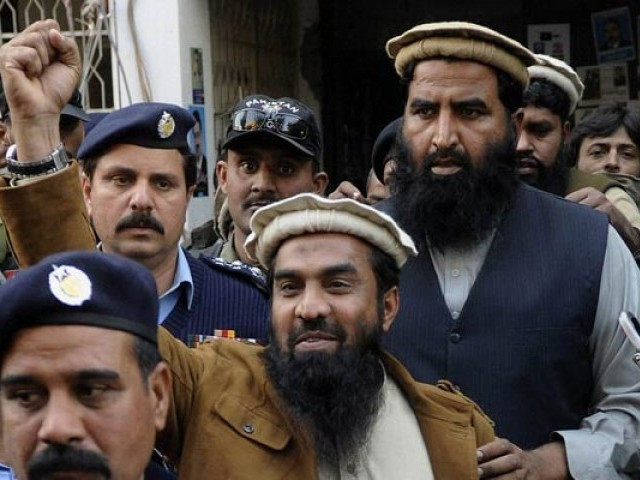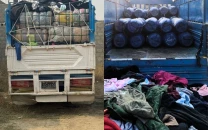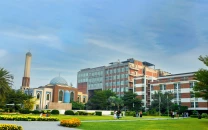Lakhvi refuses voice sample for Mumbai attacks case
Indian special public prosecutor says Lakhvi’s position is an ‘admission of guilt’

PHOTO: NDTV
Rizwan Abbasi said that the Pakistani citizen would refuse any request for his voice sample.
“According to our law, the accused have to give their consent,” he said, adding that he would also question any future move by the prosecution to seek the samples. The issue will be discussed further between the National Security Agencies of the two countries.
Abbasi’s remarks came a day after Indian Prime Minister Narendra Modi and his Pakistani counterpart Nawaz Sharif agreed to expedite the trial through various methods, including through the provision of voice samples. Earlier, an anti-terror court in Pakistan had granted bail to Lakhvi due to the alleged lack of evidence against him
Indian Special Public Prosecutor Ujjwal Nikam said Lakhvi’s position is an ‘admission of guilt’ and asked the Pakistan government to take severe action against him.
Read:China says stand on Lakhvi based on 'facts, spirit of objectiveness'
"Pakistan Prime Minister promised Narendra Modi to expedite the trial, so now Lakhvi's lawyer's refusal should be dealt with by the Pakistan government. Lakhvi's position is an admission of guilt,"
Only days ago the respective prime ministers of both countries met in Ufa, Russia where Indian Prime Minister Narendra Modi accepted Prime Minister Nawaz Sharif’s invitation to visit Pakistan next year for the Saarc summit and the two countries also agreed to take a series of steps to revive the stalled peace process.
A joint media statement released after an hour-long meeting between Modi and Sharif in Russia on Friday outlined that the two sides had decided to discuss ways and means to expedite the Mumbai case trial, including additional information like providing voice samples.
Read:Icebreaker in Ufa: Nawaz-Modi talks may help defuse tensions
Lakhvi was arrested in 2008 and indicted On November 25, 2009, for planning and helping to carry out the Mumbai attacks. An anti-terrorism court granted him bail against Rs500,000 surety bonds on December 18, 2014. The same day, a local magistrate issued a detention order for one month. On December 29, 2014, Islamabad High Court set aside the detention order and directed the authorities to release him. The Okara DCO ordered his detention on March 12 under the Maintenance of Public Order Ordinance.
The article originally appeared on DNA INDIA



















COMMENTS
Comments are moderated and generally will be posted if they are on-topic and not abusive.
For more information, please see our Comments FAQ